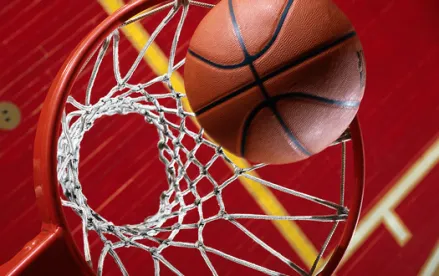On August 21, 2015, a federal court jury in Chicago returned a verdict of $8.9 million in favor of Michael Jordan and against Safeway and its former supermarket chain Dominick's for the unauthorized use of his identity in an advertisement.
Background
In 2009, in commemoration of Michael Jordan's induction into the Basketball Hall of Fame, Time published a special issue of Sports Illustrated Presents devoted to the career of Michael Jordan. Time offered advertising space to Safeway in exchange for its agreement to display and sell the magazine in its chain of Dominick's grocery stores. Dominick's full-page ad appeared at the front of the issue and was styled as a congratulatory message to Mr. Jordan. But the ad also included Dominick's name and logo, a photo of its "Rancher's Reserve" steak and a coupon along with Michael Jordan's name, his iconic number 23 and a message linking him to the steak: "YOU ARE A CUT ABOVE."
After publication, Mr. Jordan filed a complaint against Safeway and Dominick's alleging violation of the Illinois Right of Publicity Act, as well as violations of the Lanham Act and the Illinois Consumer Fraud and Deceptive Trade Practices Act, and common law unfair competition. The Publicity Act prohibits using a person's identity "for commercial purposes during the individual's lifetime without having obtained previous written consent." Mr. Jordan moved for summary judgment as to liability solely on the Publicity Act claim and the court granted his motion. Mr. Jordan then dismissed his remaining claims and the case proceeded to trial to determine the amount of damages to which Mr. Jordan was entitled as a result of defendants' unauthorized use of Mr. Jordan's identity under the Publicity Act.
At trial, damages were measured by the fair market value of the infringing use of Mr. Jordan's identity. Defendants argued that because they only used Mr. Jordan's identity in one ad in a single publication that only sold roughly 41,000 copies the fair market value was under $150,000. Mr. Jordan countered with evidence that he does not license his identity for one-time uses. Instead, he presented evidence that all his endorsement agreements provide him with at least $10 million in value. After an almost two-week trial, the jury awarded Mr. Jordan $8.9 million. Mr. Jordan will be donating the proceeds to charity.
How To Stay Out Of Trouble
Mr. Jordan's success provides important lessons for both companies that use celebrities in their advertising and individuals and companies that seek to build and protect their own brand.
A company can never be too careful when it is using a person's identity in its advertising or marketing materials. In this case, Safeway and Dominick's argued that they assumed Time had already obtained Mr. Jordan's permission to run the ad, so they did not ask for Mr. Jordan's consent. But because the Publicity Act requires consent and neither defendants nor anyone else had obtained consent from Mr. Jordan, defendants were held liable.
For many celebrities, especially athletes whose playing days are necessarily numbered, their brand may be the one thing they can count on to provide income when their playing or performing days are over. It therefore is something to thoughtfully use and closely police. By carefully limiting his endorsement partners and addressing unauthorized uses of his identity, Mr. Jordan has been able to maintain the value of his identity. When it comes to policing, a company or an individual should have a nuanced response to infringement so as to efficiently and effectively quash infringement. For example, a strongly worded letter is often sufficient to stop small-time infringers, whereas a lawsuit may be necessary to address infringement by a Fortune 500 company.
The First Amendment May Provide Only Limited Protection For Speech That Uses A Celebrity's Identity
Another similar case occured, with a lawsuit against Supervalu and its supermarket chain Jewel for a different unauthorized ad that ran in the Sports Illustrated Presents commemorative issue. Like the Dominick's ad, the Jewel ad used Mr. Jordan's identity and the Jewel-Osco slogan and logo to congratulate Mr. Jordan. But Jewel's ad did not include a coupon or reference any particular product or service that Jewel offers. After the district court in that case granted summary judgment in favor of the defendants holding that the ad was non-commercial speech protected by the First Amendment, Jordan appealed the district court's decision and the federal Court of Appeals in Chicago reversed.
Ruling in favor of Jordan, the Court of Appeals found that Jewel's ad was commercial speech and not entitled to heightened protection under the First Amendment. Jordan v. Jewel, 743 F.3d 509 (7th Cir. 2014). Emphasizing the importance of both content and context, the Court of Appeals held that Jewel's ad, which it described as a form of "image advertising," was commercial speech because it was aimed at promoting the Jewel-Osco brand. Thus, the court rejected the idea that an ad is only commercial speech if it promotes a particular product. The court reasoned that classifying image or brand advertising as "constitutionally immune non-commercial speech would permit advertisers to misappropriate the identity of athletes and other celebrities with impunity." The court concluded that the ad could only be classified as commercial speech because of its obvious underlying goal of capitalizing on Michael Jordan's value for Jewel's commercial benefit. The court's opinion provides broad protection to public figures for the use of their identity.
The case was remanded to the district court for further proceedings and is currently scheduled for trial in December of this year.





 />i
/>i
